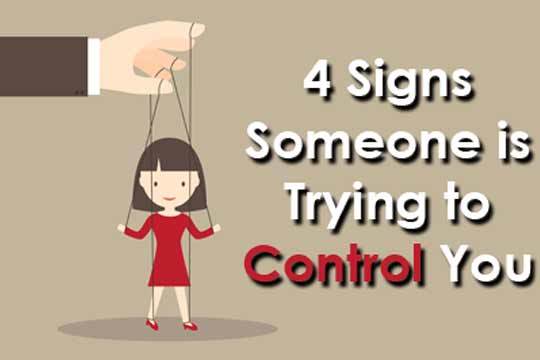Helene Lerner's Blog, page 33
May 4, 2016
Why Good Men Move On
 It's hard in any relationship to see things changing and feel like you have no control over the change. But when someone picks up and leaves, for weeks, months or years, things haven't been right.
It's hard in any relationship to see things changing and feel like you have no control over the change. But when someone picks up and leaves, for weeks, months or years, things haven't been right.
Why do men leave--here are some of the common problems.*
Lack of Communication
Not being able to tell you how they really feel, and believe that you will hear them.
Lack of Acknowledgement
Being told too often what they do wrong, and not enough about what they do right.
Lack of Being Able to Make you Happy
Not being able to make you happy. They have tried but they sense that you are disappointed in them.
Need to Grow
They feel smothered in the relationship, perhaps in the demands you are making on them. Of course, many are legitimate, but are there some that are asking too much?
Feeling Bad About Themselves
Not feeling worthy of your life and feeling less than an adequate partner.
Is there anything that can be done to save the relationship? That's up to how willing the two of you are to making the necessary changes, and seeing a therapist or counselor to help you during this tough transition.
*As we were writing this, we realized that although the focus of the article was men, it really is the same for any gender.
I Should Have Said It: How to stand up for yourself in the moment
 You are sitting with a group of people, you know the answer but you hold back.
You are sitting with a group of people, you know the answer but you hold back.
You are with your friends and you are really pissed off, but you don't say anything.
You are with your significant other, and you fear if you tell him the truth, you will hurt him "big time"...
Do any of these sound familiar? Have you kicked yourself for acting "nicely" when you didn't want to, and not saying what was really on your mind?
Here are some ways to get clear in the moment, and SAY what you really mean.
1. Think of the price you pay if you don't. It may seem like the easy way out now, but it isn't. When you "stuff" things down, you are not a happy camper.
2. The other person gets away with it. If you don't assert yourself, people will take advantage of you. Not only will this affect you in the future, but think of all the other people they may prey upon.
3. You "grow" self-respect when you stand up for yourself. Even if you are shaky as you are telling the truth, in the end, you gain more confidence to do it again.
4 Ways to Handle a Bully Who Makes You Feel Like it is Your Fault
 “If you hadn’t done that, I wouldn’t be mad,” Wayne snarled.
“If you hadn’t done that, I wouldn’t be mad,” Wayne snarled.
What had she done? Chatted with other women at the party?
“I only yell because you don’t listen,” Hale insisted.
If I don’t agree, thought Samantha, does it mean I didn’t listen?
“If you’d backed me up, I could have handled that client.”
You expect me to back you when you’re rude?
Bullies, at home or in the workplace, excel at projecting their flaws on others. Have bullies convinced you that any problems in your personal or work relationship are your own fault? Try these four strategies for handling any bully who makes you feel what’s happening is your fault.
Calm your instinctive reaction so you can think straight
When a bully attacks, your body and mind react. Adrenaline surges into your bloodstream, preparing you to “fight or flight.” Your breathing becomes rapid and shallow. Blood flows into your arms and legs, preparing you to run or battle. This acceleration of breathing and exodus of blood from your mind leaves you unable to think clearly.
Don’t let a bully’s slams foot-sweep you into rash statements or actions. Take a few deep breaths. Breathing processes your adrenaline and triggers a relaxation response.
Blood flow increases to your brain and you think more clearly. Controlling your breathing also helps you to use your adrenal response. Instead of being ruled by it and thrown into choosing between “fight” or “flight,” adrenaline plus breathing links your brain’s left and right hemispheres, adding creativity to your thinking and sharpening your wits.
Remember what’s real
If you’re a good person and a bully says, “You’re not treating me well,” it can lead you to question yourself. A bully can twist you into emotional and mental knots, chipping away at your confidence. Once they cause you to look anxiously at yourself, they draw your attention to your most negative qualities, lowering your self-esteem, and making you more susceptible to their control. Don’t let a bully’s criticism take you apart piece by piece.
Stand up to the bully, before this blame/shame game depletes your self-worth and you can’t think straight any more. Declare what you see as reality.
Don’t let the bully set the rules for the game
An ancient fable poses this challenge. You show up at your teacher’s house for a class and the teacher invites you in for a cup of tea. Just as you start to pick up the cup, the teacher pulls out a large stick and says, “Here’s your challenge and you have to decide what to do right away and before I teach you. If you pick up the cup, I will hit you with this stick. If you don’t pick up the cup, I’ll hit you.” What should you do?
Some reach for the tea, fearing the coming blow but knowing they’ll at least have some tea to drink. Some sit in frozen indecision, or leave, and give up their chance to take the class. Bully blamers, like the teacher, often present you with a no-win situation in which it’s “heads you lose, tails you lose.” Your best option is to say, “I don’t like either choice.”
Deny the bully the rewards s/he seeks
Some bullies pounce on their targets in front of an audience, knowing the pressure that watching eyes and listening ears can have.
If a bully takes you on in front of an audience, deny the bully victory. Just as a wounded swimmer attracts sharks, if you wilt with embarrassment, the bully escalates. Put your game face on.
If you’re unsure about what to say, take a deep breath and exit the situation with dignity. Even if you can’t speak, you can still walk away. If you leave under your own power, consider your retreat an “advance in new direction.”
Have bullies in your work or home life projected their behavior onto you, accusing you of flaws they refuse to admit in themselves? Steady your so you can handle their attacks; declare your truth; refuse to play by their rules and don’t reward them.

© 2016, Lynne Curry, executive coach and author of Solutions and Beating the Workplace Bully. Follow her @lynnecurry10 or on workplaceocoachblog.com or on bullywhisperer.com™
May 3, 2016
How to Get Out of a Rut and Make a Change for the Better

Another diet. Another exercise routine. Another self-help book. Despite our efforts, so many of us still face those same ten pounds, the same lack of confidence, or the same overwhelming worry. After trying countless new methods, why is it that our changes don’t last?
We are missing the secrets to make them stick! Here are four ways to implement lasting change:
1. Do you really want this change? Decide if you really want to change, or if it’s something you think you should want or something someone else wants for you. Are you actually okay with where you are right now? Dig deep to determine if change is something you desire. You need to truly want this change to make it last.
2. Get inspired. Read about people who have implemented a similar change or overcome a similar challenge. Knowing that you are not alone and that it has been done before is empowering. Take time to think about other ways you have changed throughout your life, and believe you can change again. If it’s helpful, try using a daily mantra about change. You can say something as simple as: I believe in change. I am becoming the best I can be.
3. Choose the best. A quick internet search can yield endless suggestions on any topic, and it’s easy to get overwhelmed trying to implement every great idea we come across. While it’s important to know what’s out there, we also need to know ourselves. Be open to the fact that what works for you may be different from what works for your best friend or favorite celebrity. Recognize there are many good options, but only you can decide what is best for you.
4. Identify your true motivator. While wanting to achieve a bikini body or get better sleep are worthy goals, they may not be big enough to sustain lasting change. Try playing this game with yourself: ask over and over why you want to implement this change. If it leads you to something along the lines of “because it makes me happier” or “because it brings me peace,” you’ve found a motivator that will last.
Do you have tips for making change last? Share with us in the comments below!

- Jennie Swenson, Parent Educator and Positive Youth Development Specialist
How To Stop Picking Unavailable People
 Get honest.
Get honest.
What’s really going on? What are you feeling? You say you want something better, but do you really think you don’t deserve something better? Are you picking people who remind you of how people treated you in the past – a parent, sibling, ex-lover? You need to understand the underlying motives. Question why you feel unworthy of having a terrific relationship.
What do you really want?
Maybe you’re not looking to settle down right away and want to enjoy your independence. Maybe you DO want to settle down. Are you setting your own priorities, or are you listening to how others think your life should be?
Watch for the signs and act.
Don’t deny what your gut is telling you. If you do, you’ll be roped into another relationship that seems like the one before, and the one before that, and the one before that. Act opposite to what you feel. Unavailable people can be seductive. If you feel yourself going toward someone who you know isn’t good for you, do the reverse.
Ask for help.
If the lure of the unavailable person is too strong, lean on a friend. They can help you answer the above questions and get rid of any doubt you might have. If your own negative mind-talk is getting in your way, they’ll offer a clear path.
Know that it will feel unnatural.
If you always pick the “wrong” person, it can become a habit that’s hard to break. Doing something differently than before can feel like new shoes – uncomfortable. You can only make a positive change if you let go of the past. Recall the hurt you felt from previous relationships-gone-sour and remember that it does not have to be your norm.
4 Signs Someone is Trying to Control You
 1. You don't feel like you have a choice. When asked to do something for this person, you feel boxed into a corner. If you say yes, you'll feel angry at yourself because you don't want to. If you say no, they make sure you know that to turn them down is NOT okay.
1. You don't feel like you have a choice. When asked to do something for this person, you feel boxed into a corner. If you say yes, you'll feel angry at yourself because you don't want to. If you say no, they make sure you know that to turn them down is NOT okay.
2. You try to avoid their negative vibes. Whether you pass them in the hall or have to deal with them directly, they pull an "attitude." And there's no way around that.
3. Life is unpleasant. As long as you have to deal with them, you're not very happy.
4. Subtle discounts. You ask for something, they are too busy. They gossip about you to their friends.
How to address this?
1. Be direct and to the point.
2. Speak in "I" statements.
3. Once you say what you need to, stop talking. Don't engage in an argument.
6 BIG Mistakes Managers Should Not Make
 Few jobs, other than parenting, rival the challenges of supervising people. If you’re a supervisor, you’ll make mistakes. Forewarned is forearmed, however, and here are 6 common mistakes to avoid.
Few jobs, other than parenting, rival the challenges of supervising people. If you’re a supervisor, you’ll make mistakes. Forewarned is forearmed, however, and here are 6 common mistakes to avoid.
Being a supervisor instead of a coach
What’s the difference between coaching and supervising? Most of us value those who coach us. We believe our coaches want the best for and from us. When our coaches say “handle that ball differently,” we listen and try to do what the coach says. After all, we feel we and the coach are on the same team. In contrast, many employees don’t like being supervised. When their supervisor says “do that differently,” many employees resent it, thinking, “What’s wrong with how I do it?”
Not giving employees attention
Coaching requires you to be there for your employees, as their guide and resource. If you closet yourself in your office, leaving your employees with no one easily accessible to answer their questions, give them support or guide them, you ignore the supervisor/employee equation.
Let’s say you supervise five employees. If you guide them all to work a productive forty hours, you and your team have two hundred and forty hours of productivity. If, however, you focus on your work and ignore your job as team coach, some of your employees may start to coast. Some employees may then continue to work productively for forty hours, however others may slide to only thirty hours of true productivity, for an average of thirty-five hours. If so, your five employees generate one hundred and seventy-five hours of productivity, forcing you to work sixty-five hours a week to make up the difference.
Forgetting you’re the role model
As the supervisor, you model the behavior you want to see. Do you want employees to show up on time? Do so yourself. Do you text or Internet surf during the day? If so, expect your employee will as well.
You need to act with integrity even when an employee drives you crazy. If, as a supervisor, you complain about one employee to another, the second employee wonders “What are you saying about me to my co-workers?”
Forgetting employees like to win
Why do so many of us put more effort into sports or at the gym than we do at work? In sports and at the gym, we have goals. We make a basket, score a goal or complete ten minutes at 2.5 miles an hour and incline three on the treadmill.
Employees, too, like to win. Have you told your employees what goals they’ve met or how well they’ve done this week? If not, do so today.
Forgetting to develop – yourself and your employees
Being a supervisor has a beginning but no end. You can’t rest on your laurels. Instead, recognize and own your mistakes and make yourself better every day.
Help your employees improve as well. Give them feedback and growth opportunities. If you do, you’ll keep them longer.
Burning your employees out
Some supervisors overwork their best employees. If you do this, you punish your best employees for giving their all. Every so often, give your employees a break. After all, don’t they deserve it?

© 2016, Lynne Curry, executive coach and author of Solutions and Beating the Workplace Bully. Follow her @lynnecurry10 or on workplaceocoachblog.com or on bullywhisperer.com™
May 2, 2016
5 Myths About Strong Women and the Truth Behind Them
 1. They’re bitches.
1. They’re bitches.
They’re not bitches, they’re assertive. Many times women who are strong and direct are viewed as difficult. But that’s not the case. They size up the situation, are direct and to the point.
2. They’re careless.
She’s a risk-taker. But don’t let that fool you, her plans are well thought out. And more than not, have positive results. (Stop being so jealous)
3. They’re selfish or self-absorbed.
Strong women seek little validation from others and find it in themselves. They know who they are and are confident about their decisions.
4. They’re closed off.
Strong women feel deeply. They may “read the room” and feel certain things aren’t appropriate to share. But that’s because of timing, not because they’re insensitive.
5. They don’t need other people.
That is totally untrue. Everyone needs a shoulder to lean on at times. And they are no exception.
- Bre Glynn
4 Ways to Boost Your Confidence When You Feel Shaky
 Losing your confidence can happen to anyone from time to time. But it doesn't need to last for long. Here are some tips for regaining your self-assurance.
Losing your confidence can happen to anyone from time to time. But it doesn't need to last for long. Here are some tips for regaining your self-assurance.
1. Produce a result. Accomplish something--anything. Especially if your lack of confidence is associated with feeling ineffective. In a work environment, producing a result could be something as simple as catching up on a long day of emails or having a difficult conversation with an associate that you've been putting off. Cleaning or organizing your physical environment, at home or work, may also improve your confidence.
2. Spend time with friends or colleagues who think highly of you--in whose presence you experience yourself as competent, effective, appreciated, loved! Conversely, this is NOT a time to be hanging out with people who are overly critical, who may cause you to further question yourself.
3. Acquire a new learning or skill. This might include getting the hang of a new exercise or workout program, being trained in a software application, or studying meditation. The experience of competence is closely related to the experience of confidence.
4. Take a timeout and give yourself a good pep talk. Ask yourself: "What are the qualities that people most appreciate about me, inside or outside of work?" "What unique gifts do I possess?" "What personal attributes do I take the most pride in?"
Following these tips should put you back on solid ground.

Ilene Fischer, Partner, Mark Kamin and Associates
April 30, 2016
When is Loving Too Much, Too Much?
Yes, we care with a full heart and go all out for those we love—but when does this cross over the line? Take a look at when we are doing ourselves a disservice.

1. When you are “giving on empty.” You know that you need to replenish when every “ask” seems like you’re being “put upon.” You just don’t have it to give, right now, but you’re not admitting that to yourself.
2. When you’re Angry and really don’t want to give. You have a hard time saying NO and because of that you fulfill a request reluctantly.
3. When you fear that someone will leave. You are there for this person too much of the time, in fact, the relationship is very one-sided, but you are afraid to take a stand for what you really want and need.
The first step in changing these patterns is to admit that they’re happening. Look at the price you pay for not be true to yourself, and admit that it is too great. Acting outside your comfort zone and taking small steps to assert your needs is very courageous. You don’t need to do it alone, therapists, counselors and trusted friends can be a big help.
Helene Lerner's Blog
- Helene Lerner's profile
- 9 followers



